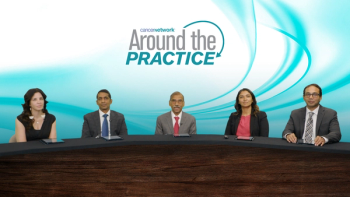
Explore the complexities of treating a 72-year-old woman with relapsed refractory multiple myeloma using bispecific antibody therapy.

Your AI-Trained Oncology Knowledge Connection!


Explore the complexities of treating a 72-year-old woman with relapsed refractory multiple myeloma using bispecific antibody therapy.
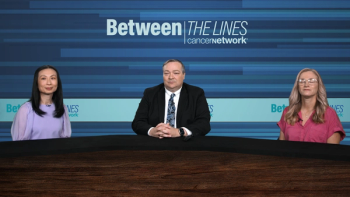
The AQUILA trial explores a fixed-duration therapy for myeloma, aiming to balance effective treatment with reduced long-term toxicity for patients.
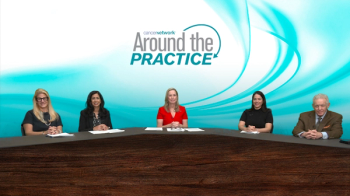
Panelists discuss how data from recent ESR1-mutant disease trials are influencing interpretation of survival end points, regulatory expectations, and real-world adoption of oral SERDs.

Oncologists discuss the significance of PCR and MPR rates in patient counseling, emphasizing treatment benefits and survival outcomes.

Panelists discuss how rapidly evolving guidelines are reshaping treatment pathways by preserving endocrine therapy as a backbone while introducing earlier use of combination regimens and ADCs.

Experts discuss the importance of PD-L1 testing in treatment decisions for gastric cancer, emphasizing personalized approaches and improved patient outcomes.

Early intervention in myeloma treatment addresses critical patient needs, highlighting new trial data and the importance of tailored therapies for better outcomes.

Explore the latest advancements in bispecific antibodies for treating BCMAs, highlighting their efficacy, administration frequency, and toxicity profiles.
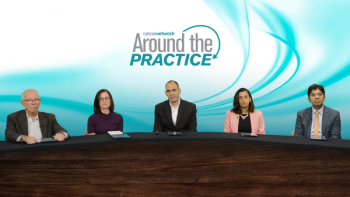
Explore the differences between bispecific antibodies and CAR T-cell therapy, highlighting their unique benefits and administration processes.
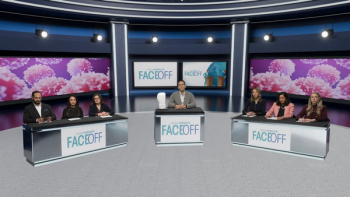
Explore real-world outcomes of Luspatercept and second-line ESAs in treating low-risk MDS, revealing promising response rates and treatment insights.

Explore real-world outcomes of Luspatercept and second-line ESAs in treating low-risk MDS, revealing promising response rates and treatment insights.

Frequent follow-up to determine if lymphedema has developed is necessary to catch it early and begin rehabilitation processes.

The use of bioimpedance spectroscopy takes under 2 minutes and can help detect lymphedema before symptoms appear.

Experts discuss the significance of event-free survival and overall survival in cancer trials, emphasizing patient quality of life and treatment decisions.

Experts discuss the significance of event-free survival and overall survival in cancer trials, emphasizing the importance of patient quality of life.

Clinicians who are experienced with immunotherapy, like durvalumab, can easily identify and manage AEs associated with treatment for gastric/GEJ cancer.

Based on results from the MATTERHORN study of durvalumab/FLOT in gastric/GEJ cancers, the regimen should be considered a new SOC.

Yelena Y. Janjigian, MD, provides the background of the MATTERHORN trial, showcasing the importance of durvalumab plus FLOT in gastric/GEJ cancers.
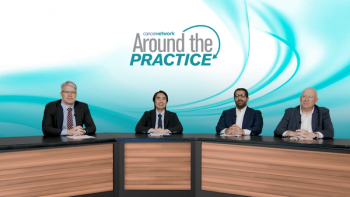
Oncologists discuss effective strategies for safely implementing combination therapies while managing adverse events to enhance patient outcomes.

Experts discuss the efficacy of amivantamab and lazertinib in treating EGFR mutations, highlighting improved outcomes and reduced CNS metastases.

Kandance P. McGuire, MD, FACS, breaks down what lymphedema is and why it may be detected later.

Doctor Fontaine discusses the importance of patient selection for preoperative chemotherapy and the effectiveness of immune checkpoint inhibitors in surgery outcomes.

Experts discuss the challenges and strategies in managing patients with inadequate responses to preoperative cancer treatments, emphasizing the need for clinical trials.
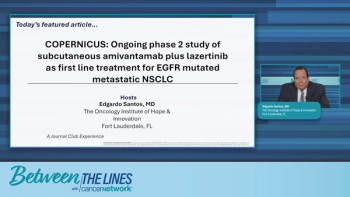
This opening section introduces the COPERNICUS study and frames it within the evolving treatment landscape for EGFR-mutated metastatic non–small cell lung cancer.
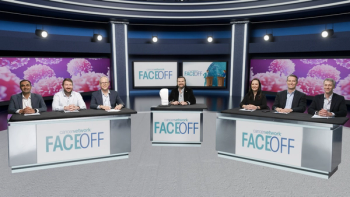


Panelists discuss how sequencing targeted therapies after CDK4/6 inhibitors differs for patients with actionable mutations versus those without, incorporating evidence for rechallenge and combination strategies.


Explore the evolving landscape of high-risk smoldering myeloma treatment options and the challenges in patient management and risk assessment.

Explore the differences between bispecific antibodies and CAR T-cell therapy, highlighting their unique benefits and administration processes in cancer treatment.